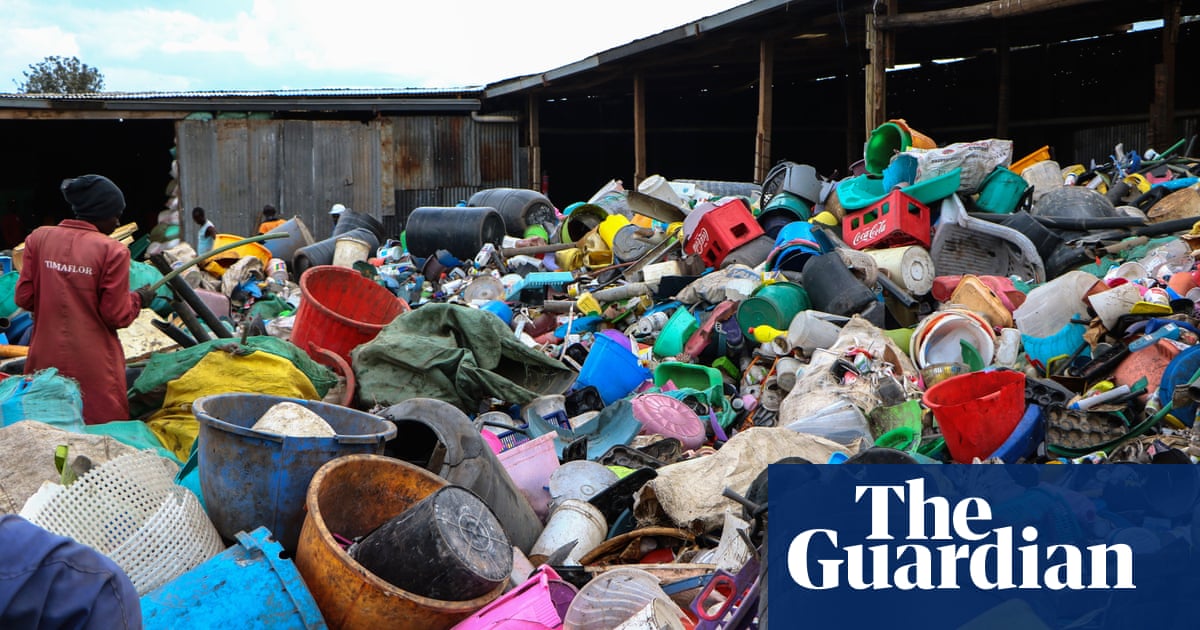Countries are for the first time considering restrictions on the global production of plastic – to reduce it by 40% in 15 years – in an attempt to protect human health and the environment.
As the world attempts to make a treaty to cut plastic waste at UN talks in Ottawa, Canada, two countries have put forward the first concrete proposal to limit production to reduce its harmful effects including the huge carbon emissions from producing it.
The motion submitted by Rwanda and Peru sets out a global reduction target, ambitiously termed a “north star”, to cut the production of primary plastic polymers across the world by 40% by 2040, from a 2025 baseline.
It says: “The effectiveness of both supply and demand-side measures will be assessed, in whole or in part, on their success in reducing the production of primary plastic polymers to sustainable levels.”
The proposal calls for the consideration of mandatory reporting by countries of statistical data on production, imports and exports of primary plastic polymers.
A global plastic reduction target would be similar to the legally binding Paris agreement to pursue efforts to limit global temperature increase to 1.5C above preindustrial levels, Rwanda and Peru said.
“The target should align with our objectives for a safe circular economy for plastics by closing the circularity gap between production and consumption,” the countries said.
“It should also align with our objective in the Paris agreement to limit warming to 1.5C. To this end, one such global reduction target could be a 40% reduction by 2040 against a 2025 baseline.”
Global plastic production soared from 2m tonnes in 1950 to 348m tonnes in 2017. The plastic production industry is expected to double in capacity by 2040.
About 11m tonnes of plastic leaches into the ocean each year, and by 2040 the scale of this marine plastic waste pollution is likely to triple.
Plastic production is a significant driver of climate breakdown, as most plastic is made from fossil fuels. A study by scientists at the US-based Lawrence Berkeley National Lab has estimated that by 2050 plastic production could account for 21-31% of the world’s carbon emission budget required to limit global heating to 1.5C.
after newsletter promotion
A 2021 analysis by Beyond Plastics found that the US plastics industry will be a bigger contributor to the climate crisis than coal-fired power in the country by 2030.
Countries agreed at UN talks in 2022 in Nairobi, Kenya, that a treaty to cut plastic waste must address the full life cycle of plastic. They promised to forge an international legally binding agreement by 2024.
The Ottawa talks, which are due to finish on Monday, aim to get 175 countries to agree the draft text of the treaty.
Graham Forbes, the global plastic projects leader at Greenpeace USA, who was at the Ottawa talks, said: “This is not an ambitious enough target for Greenpeace but it is an important first step to an agreement to limit global plastic production. You cannot solve the pollution crisis unless you constrain, reduce and restrict plastic production.”



